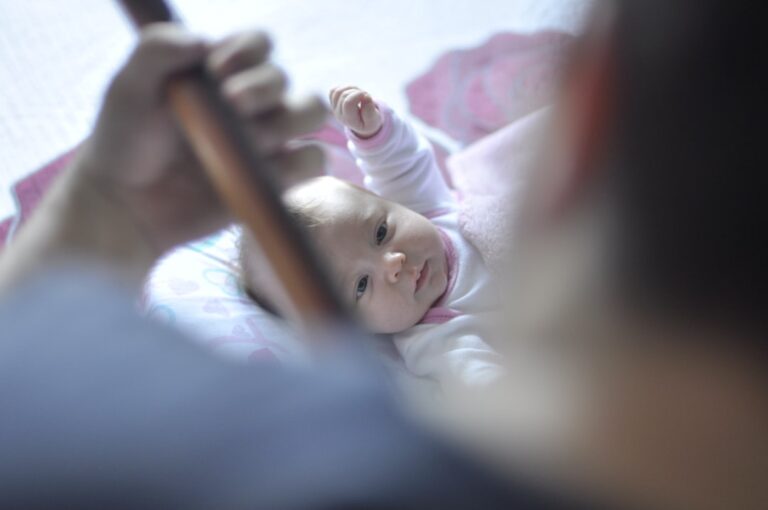As a parent, discovering your child has lied can be both frustrating and worrying. Whether it’s a denial about who broke the vase or a “story” about finished homework, dishonesty in children raises important questions. Why do kids lie? Is it just a phase, a sign of bigger problems, or something else entirely? This article explores the common parenting question: Why does my child lie—and how should I respond?
Why Children Lie: Common Reasons Behind Dishonesty
Lying is a normal part of child development, but understanding the motivations behind it is crucial. Here’s why kids commonly choose to lie:
- Avoiding Trouble: Fear of punishment is a strong motivator, especially if the consequence feels large or unpredictable.
- Gaining Approval: Kids may exaggerate or fabricate stories to impress friends, teachers, or even parents.
- Testing Boundaries: Trying out different behaviors is part of learning what’s acceptable and understanding social norms.
- Wishful Thinking: Younger children often struggle to separate imagination from reality, leading them to unintentionally make up stories.
- Protecting Others: Sometimes kids lie to shield a friend or sibling from blame or hurt feelings.
Recognizing which motivation is at play can help you tailor your approach—and react with empathy instead of anger.
Developmental Stages and Truth-Telling
Not all lies are equal, and a lot depends on your child’s age:
- Preschoolers (Ages 3-5): At this stage, fantasy and reality often blur. Lies may be wishful thinking or an extension of pretend play, not deliberate intent to deceive.
- Early Elementary (Ages 6-9): Children begin to understand the difference between truth and lies, but may lie to avoid consequences or seek approval.
- Preteens and Teens (Ages 10+): Older children lie for more complex reasons—maintaining privacy, asserting independence, or testing boundaries.
Understanding these stages is critical for appropriate parental response.
How Parental Reactions Shape Honesty
How you respond to lying can influence whether it becomes a habit. Here’s what research and experts suggest:
- Model the Behavior You Want to See
Kids are keen observers. If they catch you telling white lies (“Tell Grandpa I’m not home”), they’re more likely to do the same. - Separate the Lie from the Liar
Avoid labeling: Say, “That was a lie,” instead of “You’re a liar.” - Focus on Learning, Not Punishment
Guide your child towards understanding the importance of honesty by discussing consequences and feelings, rather than just imposing strict discipline. - Create a Safe Environment
Encourage truth-telling by reacting calmly, especially when your child confesses.
Effective Strategies for Addressing Lying
Not sure what to do the next time your child lies? Try these practical steps:
- Keep Your Cool: Take a deep breath and stay composed. Responding with anger can make your child more likely to lie again to avoid your reaction.
- Identify Underlying Causes: Ask yourself if external pressures—school stress, strict discipline, or desire for acceptance—are making honesty difficult.
- Have Honest Conversations: After things have calmed down, talk about what happened, why telling the truth matters, and brainstorm ways to handle similar situations differently.
- Reinforce Positive Behavior: Praise honest behavior, especially when it’s difficult for your child to be truthful.
- Set Clear Expectations: Let your child know that honesty is valued in your home—and why.
Sample Conversation Starters
- “I noticed you told me you brushed your teeth, but I think maybe you didn’t. It’s important to be honest with each other. Can you tell me what happened?”
- “Sometimes, we tell stories because we wish they were true. But honesty helps us trust each other. Let’s talk about why you said that.”
When to Worry: Signs of Deeper Issues
While most lying is normal, sometimes it signals a bigger problem. Pay attention if your child:
- Lies chronically and compulsively, even when there’s nothing to gain
- Lies in dangerous or self-destructive ways
- Shows little remorse or lacks understanding of honesty’s importance
- Uses lying to manipulate or harm others
If these patterns emerge, it may be time to consult a child psychologist or counselor for support.
Building a Culture of Honesty at Home
Your family culture plays a huge role in shaping your child’s values. Try these ideas for fostering honesty as a family:
- Share Your Own Struggles: Talk about times when it was hard for you to be honest and how you handled it.
- Read Books About Truthfulness: Stories like “The Boy Who Cried Wolf” or “Ruthie and the (Not So) Teeny Tiny Lie” can spark valuable conversations.
- Practice Role-Playing: Act out scenarios where honesty is challenging and brainstorm solutions together.
- Emphasize Effort Over Perfection: Let your child know it’s okay to make mistakes and that admitting them is courageous.
Family Activities to Encourage Truth-Telling
- Honesty Jar: Place a jar on the table and add a token every time a family member tells the truth in a tough situation. Celebrate as a family when the jar is full.
- Weekly “Truth Check-Ins”: Hold a casual meeting where everyone can share something honest from their week—good or bad—without judgment.
- Storytelling Games: Take turns telling a story, and let everyone guess what’s true and what’s made up. Discuss what makes a story believable or not.
Frequently Asked Questions About Kids and Lying
Is My Child Just Testing Me?
Testing boundaries is normal—and actually necessary! Children are learning “What happens if…?” Your calm, consistent reactions teach them that honesty is always the best policy.
Should I Punish My Child for Lying?
Consequences matter, but punishment alone rarely solves the underlying issue. Focus instead on problem-solving, understanding, and repairing trust.
Will My Child Grow Out of Lying?
Most kids tell occasional lies. With supportive parenting, honesty will take root as your child matures—especially if you practice what you preach.
Conclusion: Every Lie Is a Learning Moment
Discovering your child has lied isn’t a personal failure or a sign of bad character. Instead, it’s an opportunity to understand what’s happening beneath the surface, model empathy, and develop a closer relationship built on mutual trust. By responding thoughtfully, fostering open communication, and focusing on connection over perfection, you’re helping your child grow into a truthful and resilient person. Remember: every misstep is a moment to learn—together.




